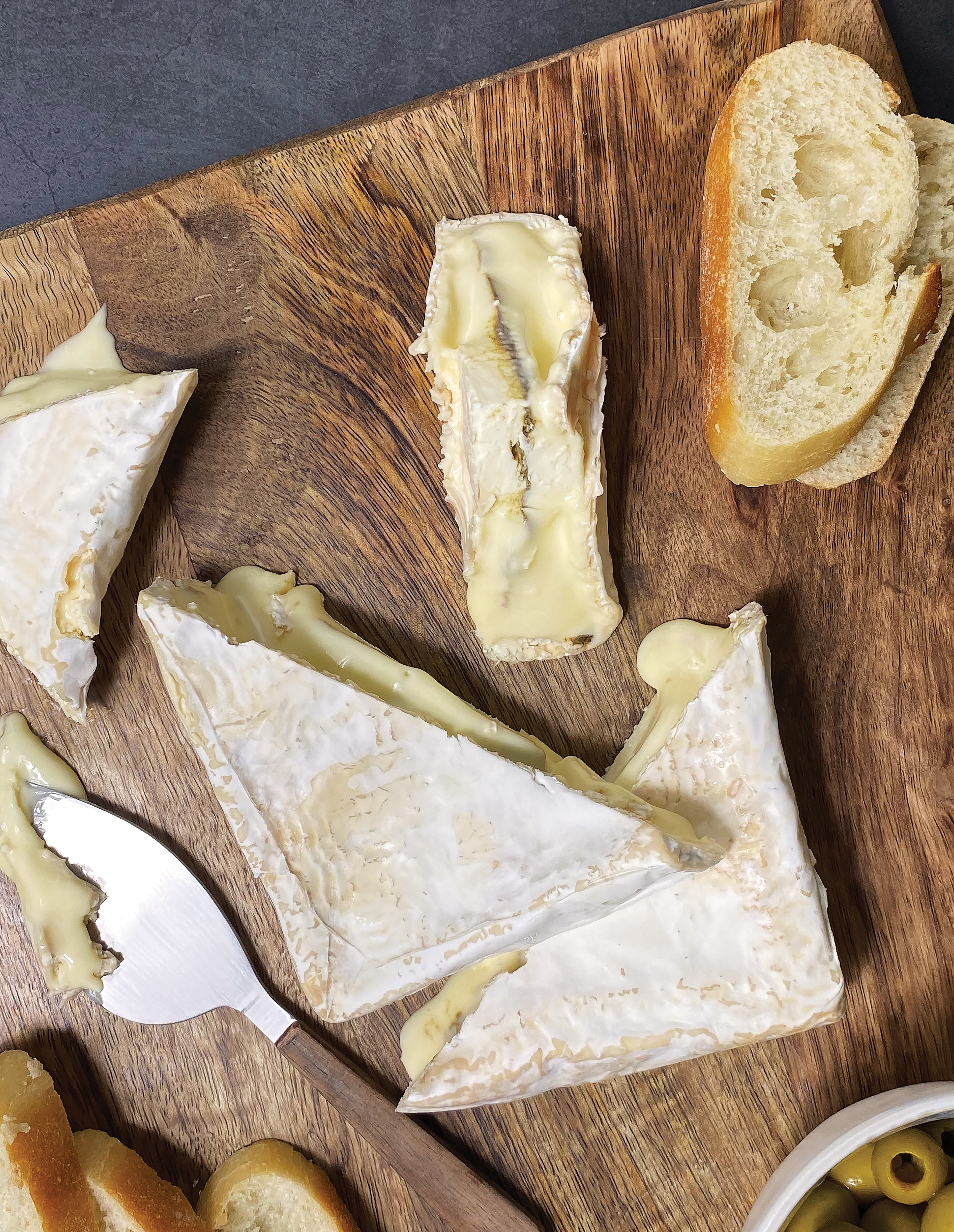
Photographed by Mallory Scyphers
No one was more stunned than Allison Lakin when her cheese, Rockweed, won Best of Class at the 2022 World Championship Cheese Contest (WCCC) in March. Lakin operates a one-woman creamery, Lakin’s Gorges Cheese, on the saltwater farm she owns with her husband in Waldoboro, Maine. She introduced Rockweed in 2019, “but not seriously,” she says. “When I first started making it, I enjoyed eating it, but I had a lot of trouble talking about it.”
“Edible seaweeds have been so much more in mainstream discussions lately that people are more amenable to them now.”
Lakin tried 14 different styles of seaweed before ending up with the layer of locally sourced dried bladderwrack that runs through the center of Rockweed, which gives the creamy cow’s milk cheese a subtle briny flavor. The idea came from the relocation of her creamery from Rockport, Maine, to the circa 1774 farm, where the land extends to the tidal Medomak River. “I wanted to create a cheese that had a taste of place— not just of this farm, but of Maine,” she says. She had done well with the cheese at New England competitions, but entering them was expensive, and since she was only making 40 wheels of Rockweed at a time, to send six to Wisconsin for WCCC gave her pause. But then she thought, “I’ve refined this cheese enough and learned how to talk about it. I decided that the cheese was better than I was giving it credit for.”
“One of my customers describes the cheese as ‘You know when you’re at the beach and you smell the air and you think, I want to taste that? That’s this cheese.’”
Sales have “exploded” since the win, Lakin says. “I keep running out before I fill all my orders. Along with that, sales of all my cheeses are up. People are remembering my actual cheese names now.” By the end of this summer, she’ll be able to hire her first full-time employee, and Lakin’s Gorges will be a 100-percent farmstead creamery. “What I have been embracing is that this shows you don’t have to have a whole huge operation and a whole lot of money to produce a good cheese. You have to have an understanding of your cheese, and patience.”



